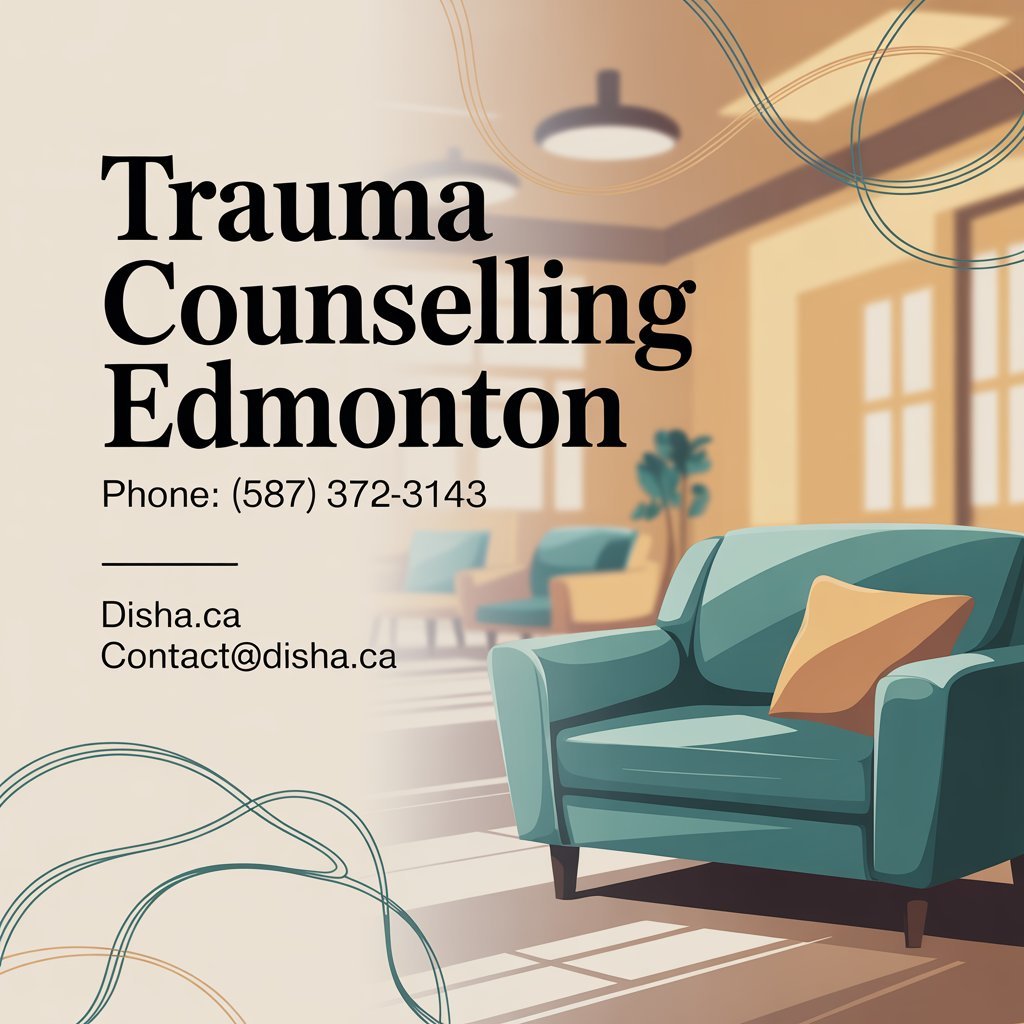What Is Trauma Therapy?
Trauma therapy is a specialized form of counselling designed to help individuals process and heal from deeply distressing or overwhelming life experiences. Whether you’ve faced childhood abuse, a serious accident, a toxic relationship, or sudden loss, trauma can leave lasting emotional scars—even if the event happened long ago.
At Disha Counselling & Wellness Centre in Edmonton, we provide compassionate, evidence-based trauma therapy in a safe, non-judgmental environment. Our therapists gently guide you through the healing process so you can regain control, build resilience, and reconnect with your life.
What Does Trauma Feel Like?
Everyone experiences trauma differently. Some symptoms appear immediately, while others surface years later. You may benefit from trauma therapy if you experience:
Flashbacks or intrusive memories
Nightmares or sleep disturbances
Avoidance of people, places, or topics
Mood swings, anger, guilt, or numbness
Anxiety, panic attacks, or hypervigilance
Feeling disconnected, “on edge,” or emotionally overwhelmed
Difficulty trusting others or maintaining relationships
Trauma isn’t just “in your head.” It lives in your body, mind, and nervous system—but healing is possible.
What Causes Trauma?
Trauma can result from a wide range of experiences, including:
Childhood abuse or neglect
Sexual assault or domestic violence
Accidents or life-threatening events
Medical trauma or major surgery
Sudden loss or grief
Systemic or intergenerational trauma
Emotional abuse, bullying, or abandonment
Immigration or cultural displacement
At Disha, we recognize both “big T” traumas (like war or assault) and “small t” traumas (like emotional neglect or repeated invalidation). No matter the cause, your pain is valid—and treatable.
How Does Trauma Therapy Work?
Our therapists are trained in trauma-informed care, meaning we prioritize your emotional safety, choice, and empowerment. We never force you to revisit traumatic memories before you’re ready.
Our approach includes:
Somatic Therapy – reconnecting body and mind to release stored trauma
EMDR (Eye Movement Desensitization and Reprocessing) – helps reprocess traumatic memories
Cognitive Behavioural Therapy (CBT) – reframe unhelpful thoughts and beliefs
Narrative Therapy – make sense of your story and reclaim your voice
Mindfulness and Grounding Techniques – reduce anxiety and regain calm
Attachment-Based Therapy – repair relational wounds and build trust
Who Can Benefit from Trauma Therapy?
- Adults experiencing PTSD, complex PTSD, or emotional flashbacks
Survivors of abuse, assault, or neglect
Immigrants or refugees carrying displacement or intergenerational trauma
Individuals feeling stuck, frozen, or emotionally shut down
Anyone struggling with anger, anxiety, trust, or self-esteem after painful experiences
You don’t need a diagnosis to start therapy. If something inside you doesn’t feel safe, grounded, or whole—this space is for you.
Frequently Asked Questions (FAQs)
1. Do I have to talk about the trauma right away?
No. We move at your pace. Many clients begin by learning coping skills before discussing traumatic memories.
2. Is trauma therapy different from regular counselling?
Yes. Trauma therapy uses specific, evidence-based approaches to work with trauma safely and effectively.
3. Will I ever “get over” the trauma?
You may not forget it, but with therapy, you can heal your nervous system, reduce distress, and live a meaningful life beyond the trauma.
4. Can trauma therapy help with anxiety, depression, or sleep issues?
Absolutely. Many of these symptoms are rooted in unresolved trauma, and treating the trauma often brings relief.
5. Is therapy confidential and covered by insurance?
Yes. All sessions are confidential and may be covered under extended health benefits with a Registered Psychologist or Social Worker.
Where Can I Find Trauma Therapy Near Me?
If you’re searching for trauma therapy in Edmonton, Disha Counselling & Wellness Centre is here to help. We welcome individuals from all walks of life and provide specialized care for trauma in a non-judgmental, inclusive space.



